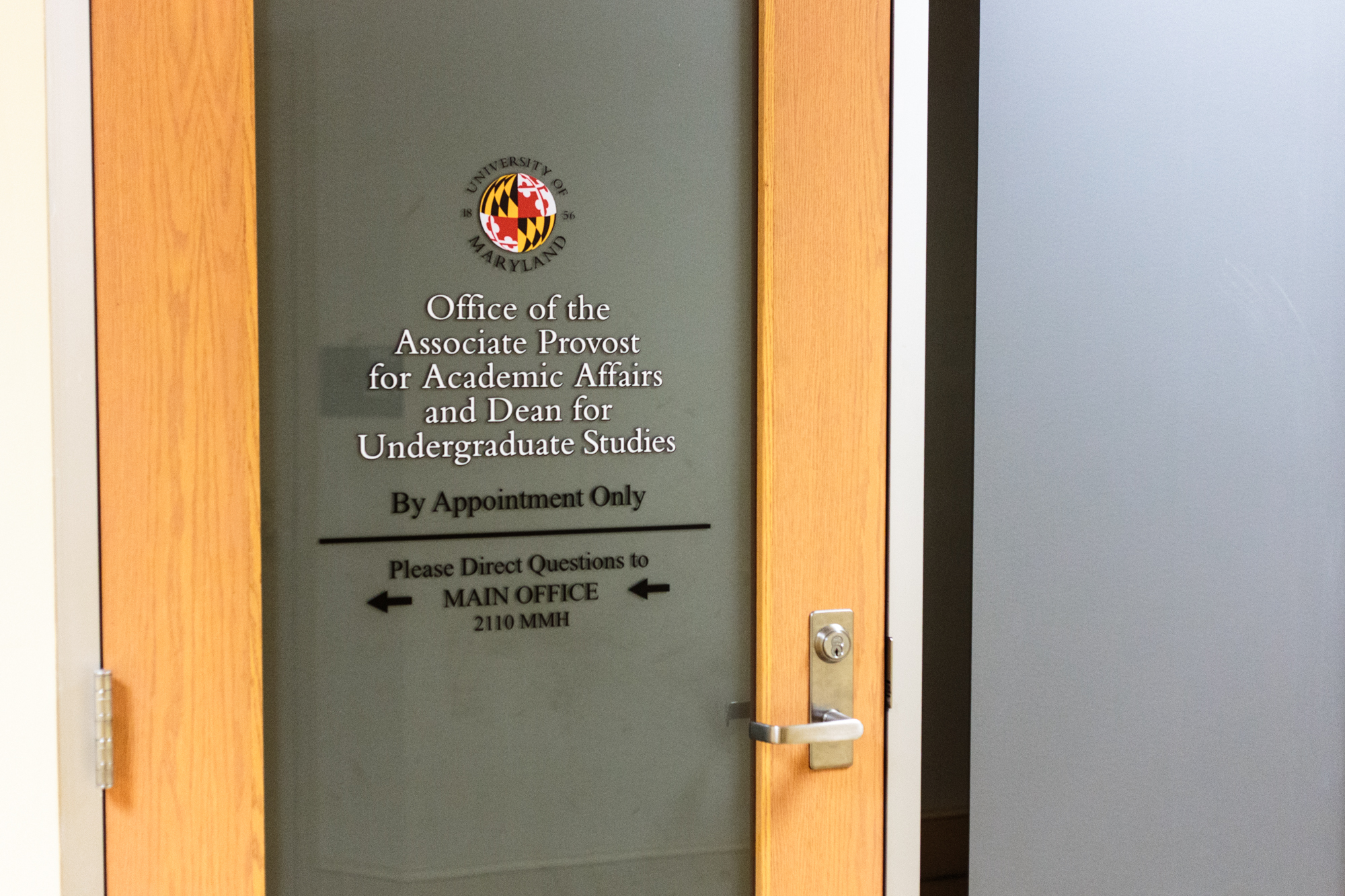Although the University of Maryland enrolled about 500 more students in its freshman class than initially planned for the 2016-17 academic year, the general education system is largely meeting the increased demand, university officials said this week.
“We have the impression that there is an adequate number of seats being offered in general education for students on the campus,” said William Cohen, undergraduate studies associate provost and dean, during a Thursday meeting with the University Senate’s Educational Affairs Committee. “It is not impeding their progress to their degree.”
The number of seats offered and issued increased in nearly every general education course category from the spring 2016 semester to the fall 2016 semester, according to a recent report from the Office of the Associate Provost and Dean for Undergraduate Studies.
The largest increases came in the Scholarship in Practice, which increased seats by 2,050 from spring to fall, and I-Series categories, which increased seats by 1,649.
The influx has caused some challenges. Some Fundamental Studies courses — Academic Writing, Oral Communications and Mathematics — were particularly stressed by the enrollment increase, as were introductory courses in fields such as computer, mathematical and natural sciences, Cohen said.
Despite this, Cohen said colleges at this university “were amazing,” adjusting accordingly and finding “extremely creative and inventive ways to deliver these additional seats to the campus.”
The Cultural Competence category — one of two categories of classes that can fulfill the diversity requirement — featured the fewest number of available seats, allocating more than 1,000 fewer seats than its closest competitor, Academic Writing. This category was the only one cited in the report that did not see an increase in the number of seats from the spring to the fall.
Cultural Competency courses tend to be small, discussion-oriented classes featuring more than one instructor, Cohen said, which may explain why there are so few seats available.
“The learning outcomes for those courses are pretty rigorous to meet,” Cohen said, “so it’s a gradual process of building the pipeline. We think that they have real value, but we also don’t expect that every student is going to have that experience.”
The diversity requirement can also be met through courses in the Understanding Plural Societies category.
The university is working to expand the number of courses offered with the Cultural Competence designation by “provid[ing] incentives in the form of stipends for the faculty to propose and develop these courses,” Cohen said.
A $1,000 stipend is granted to faculty members who complete a Cultural Competence workshop, and another $2,000 is granted to faculty whose courses are approved and taught under the Cultural Competence designation and who complete a learning outcome assessment — a review of the students’ performance — for the course, according to the report.
Douglas Roberts, general education associate dean, said Cultural Competence courses are already on the rise.
“There has been a push to increase the capacity,” Roberts said. “So I would say where we are now is way beyond where it was actually envisioned at the onset of the program, and I think it’s continuing to grow.”
He added educating faculty to properly administer these courses will play a key role in increasing their prevalence and efficacy.
Assessment is currently underway in all general education courses, Cohen said. The Office of Undergraduate Studies has worked with the Division of Information Technology and Teaching and Learning Transformation Center to create a tool that assesses student performance via ELMS, according to the report. This assessment process, which is the “national standard for improving teaching and learning,” according to the report, evaluates courses’ learning outcomes and the degree to which students have met them.
“It’s meant to be a very positive experience to get people together to talk about teaching and learning,” said Ann Smith, Undergraduate Studies assistant dean.
Cohen said general education courses may need to be re-evaluated as time goes on and professors gain experience with them. As professors actually teach a course, they may consider adapting it to better meet the needs of students.
“Courses that maybe were approved early on might be looked at a little bit differently now,” he said. “So we have talked about the possibility of a re-review process at some point.”



